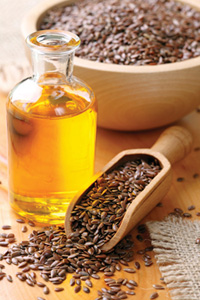I would suggest it is YOU who knows not the difference OR the physical properties of BLO ... IT IS NOT EDIBLE ... BLO and FLAXSEED OIL are SIMILAR, but not one and the same ...
BLO reacts with Oxygen ... it OXIDIZES ... tries to burn - an exothermic process - gives off heat ... BLO seeps into the wood where it sits in a useless glob for decades ... never really drying OR forming any film of which you speak. I have stripped finishes from antiques and set them in the sun to dry out, only to see your wonderful BLO oozing from the pores after a few hours in the warmth. So much for your polymerized film forming properties.
Also ... CATALYST : Chemistry . a substance that causes or accelerates a chemical reaction without itself being affected. Are you actually saying that the Cobalt Driers in BLO remain in their original (carcinogenic) state forever ??? What in the world is it about BLO that causes people to make up such preposterous declarations about it ??? The only factual statement you made in your last post was the part about Oxidation ... IT IGNITES SPONTANEOUSLY ... that's one of it's major drawbacks ... EVERYTHING else in that post is simply factually incorrect.
The ONLY solvents in BLO are those added by the end user ... again, check the MSDS sheet ...
Boiled Linseed Oil 09-Dec-2009
Cobalt driers
CA. Alberta OELs
TWA
0.05 mg/m³
as Co
Cobalt driers
CA. British Columbia OELs
TWA
0.02 mg/m³
as Co
Cobalt driers
CA. Quebec OELs
TWA
0.02 mg/m³
as Co
Cobalt driers
US. ACGIH TLV
TWA
0.02 mg/m³
as Co
Linseed oil (Mist.)
CA. Alberta OELs
TWA
10 mg/m³
Linseed oil (Mist.)
CA. British Columbia OELs
TWA
10 mg/m³
Linseed oil (Respirable mist)
CA. British Columbia OELs
TWA
3 mg/m³
Linseed oil (Mist.)
CA. Ontario OELs
TWA
10 mg/m³
Linseed oil (Mist.)
CA. Quebec OELs
TWA
10 mg/m³
Linseed oil
US. NIOSH Guide
IDLH
-
Linseed oil (Respirable fraction.)
US. OSHA Z-1 PEL
TWA
5 mg/m³
Linseed oil (Total dust.)
US. OSHA Z-1 PEL
TWA
15 mg/m³
Yes ... IT DOES "POP" the grain ... but then, so does any number of things that are all far less dangerous and more predictable.






 The main difference between
The main difference between 


